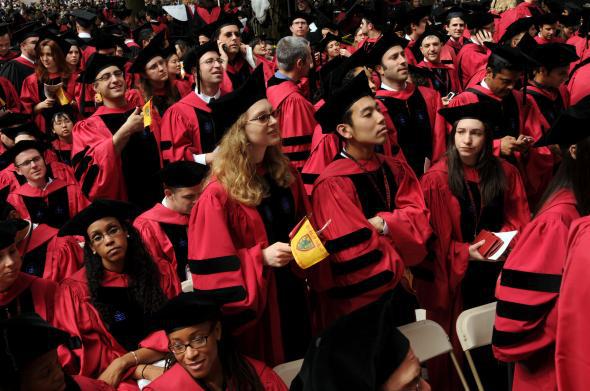If you’re a high school senior applying to college here’s how it’s supposed to work: You study hard, do community service in the Dominican Republic, get good SAT scores, get into an Ivy League college, graduate from that college, and—boom!—you’re coasting towards the happy, fulfilled alumni magazine-worthy life you always imagined. That’s the deal—the reward for chemistry camp. But, that may not exactly be the case.
A new Gallup study surveyed 29,650 college graduates of all ages who attended all types of colleges and came up with some surprising findings. Namely, the exclusivity of the college that a person attends doesn’t lead to higher levels of well-being in their post-graduate lives.
“Gallup believes five areas make up well-being: social, financial, purpose, community and physical,” according to Inside Higher Ed. Here’s a dive from NPR into what Gallup discovered by surveying graduates on these aspects of well-being.
It found that 39 percent of college grads overall say they’re “engaged” at work (which is 10 points higher than the population at large). And, while almost 5 in 6 self-report doing great in at least one sphere — whether sense of purpose, financial security, physical health, close relationships or community pride — only 11 percent are “thriving” in all five areas of well-being. And here’s the kicker. Those percentages did not vary based on whether the grads went to a fancy name-brand school or a regional state college, one of the top 100 in the U.S. News & World Report rankings or one of the bottom 100.
Other factors, however, like type of major selected, debt incurred, and being “emotionally supported” and engaged by the school were factors in greater well-being later in life.
